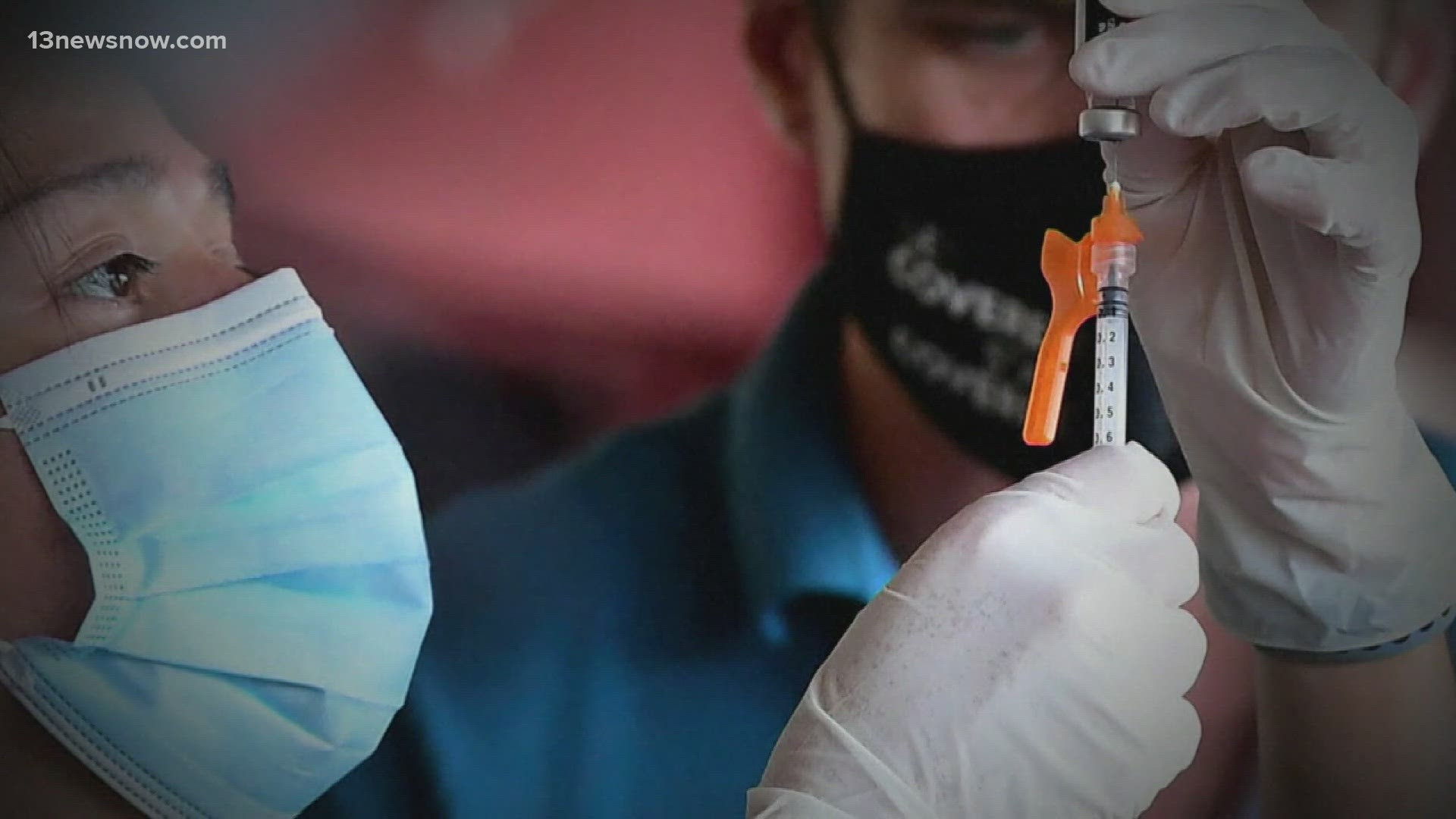NORFOLK, Va. — Respiratory illnesses are common this time of year, as everyone goes back to work and school following the Thanksgiving holiday break. However, doctors are warning people to not let their guard down as infections increase across the state throughout the rest of the holiday season.
According to the Virginia Department of Health's latest data regarding respiratory infections, the state saw a 12% spike in people who visited emergency rooms or urgent cares for Respiratory Syncytial Virus (RSV) in the past week. The data also shows RSV diagnoses recently hit a two-year high in Virginia and have remained "significantly elevated" compared to the baseline of previous weeks.
The latest report also states illnesses like influenza (flu) and COVID-19 have remained steady across the state.
"This is the time of year for respiratory infections," said Dr. Laura Sass, Infectious Disease Specialist with Children's Hospital of the King's Daughters (CHKD) in Norfolk. "Based on our own internal numbers, we will start to increase again before Christmas and right through January."
Dr. Sass said she and her team are seeing a similar pattern to what hospitals and urgent care centers are seeing across the Commonwealth. She said patients at CHKD are often being diagnosed with RSV rather than flu or COVID-19.
"Right now, we're seeing mostly RSV, which is typical for this part of the year. The majority of the patients that need to be admitted to the hospital have RSV," Dr. Sass explained. "Our flu numbers are not that bad. I know they've been talking about increasing activity in the state, but we've seen it more sporadic. It's definitely been happening and we've been seeing both flu A and influenza B."
What to know about RSV prevention:
Dr. Sass said that it is crucial to not let your guard down. She said as children go back to school from their holiday break and return to family gatherings throughout the month of December, the risk of getting infected increases. She said there are ways to help prevent the spread within your own household.
"The way we can protect [children] is keeping them away from sick people. Don't kiss the baby. If someone has a full and runny nose, don't let them kiss grandma or great-grandma. Be cognizant of that and try to help protect them," Dr. Sass advised. "Also, if you're sick, just stay home, especially if you have a child that's less than two months old. It's better to be safe that way."
Dr. Sass said now is the time to get your vaccine as well to help prevent major complications if you do get sick.
The influenza and COVID-19 vaccines are available and easy to access. The RSV vaccine is currently available to adults 60 years and older and is recommended for pregnant people at a certain time during the third trimester.
"We do have the new RSV passive immunization with that antibody, but unfortunately, it's not as readily available as [health experts] had wanted, so we can't protect all the kids as well as we want," Dr. Sass explained. "Get those vaccines at least two weeks before going on the holidays and seeing those family members, so you have the best protection."
Dr. Sass also reminded people to wear masks in closed areas where there's not a lot of ventilation and to consistently wash your hands this time of year. She said those are some of the best tactics to prevent spreading infection.
Dr. Sass said CHKD doctors and nurses are preparing for a potentially higher number of people with respiratory illnesses, but she said right now, she said her staff is well equipped to handle a possible influx of patients.
Most pharmacies offer vaccinations against COVID and flu. You can also learn where you can get your vaccine on the CDC website.

